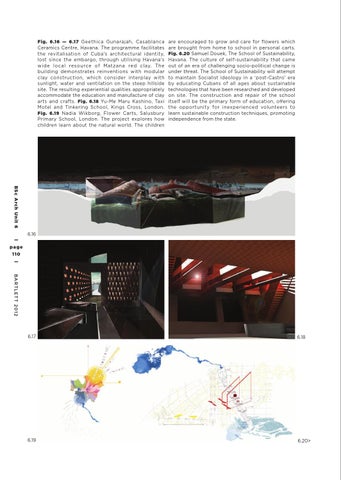Fig. 6.16 — 6.17 Geethica Gunarajah, Casablanca Ceramics Centre, Havana. The programme facilitates the revitalisation of Cuba’s architectural identity, lost since the embargo, through utilising Havana’s wide local resource of Matzana red clay. The building demonstrates reinventions with modular clay construction, which consider interplay with sunlight, water and ventilation on the steep hillside site. The resulting experiential qualities appropriately accommodate the education and manufacture of clay arts and crafts. Fig. 6.18 Yu-Me Maru Kashino, Taxi Motel and Tinkering School, Kings Cross, London. Fig. 6.19 Nadia Wikborg, Flower Carts, Salusbury Primary School, London. The project explores how children learn about the natural world. The children
are encouraged to grow and care for flowers which are brought from home to school in personal carts. Fig. 6.20 Samuel Douek, The School of Sustainability, Havana. The culture of self-sustainability that came out of an era of challenging socio-political change is under threat. The School of Sustainability will attempt to maintain Socialist ideology in a ‘post-Castro’ era by educating Cubans of all ages about sustainable technologies that have been researched and developed on site. The construction and repair of the school itself will be the primary form of education, offering the opportunity for inexperienced volunteers to learn sustainable construction techniques, promoting independence from the state.
B Sc Arch Un i t 6 —
6.16
pa g e 110 — B A RT LET T 2012 6.17
6.18
6.19
6.20>
